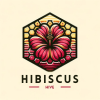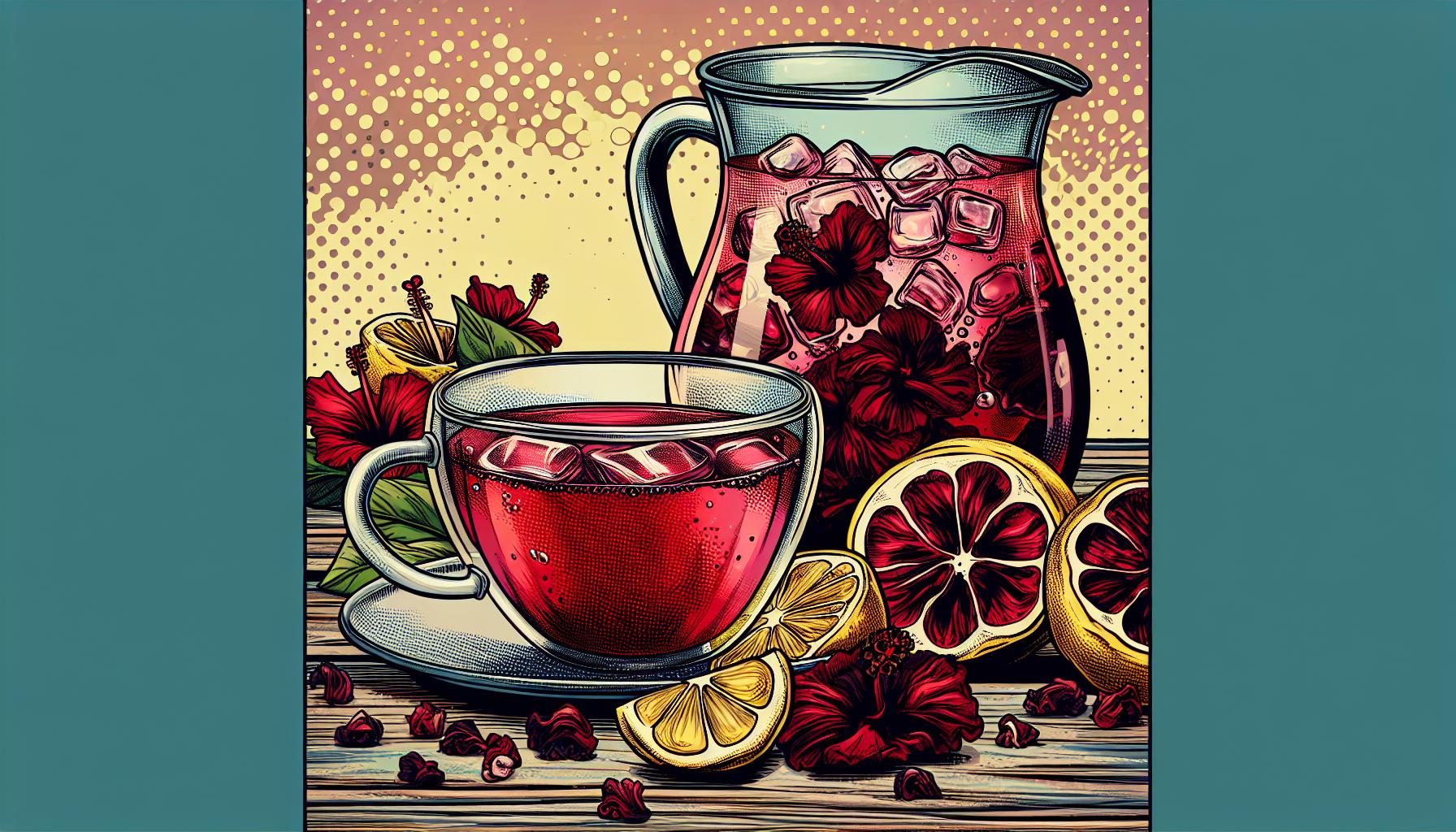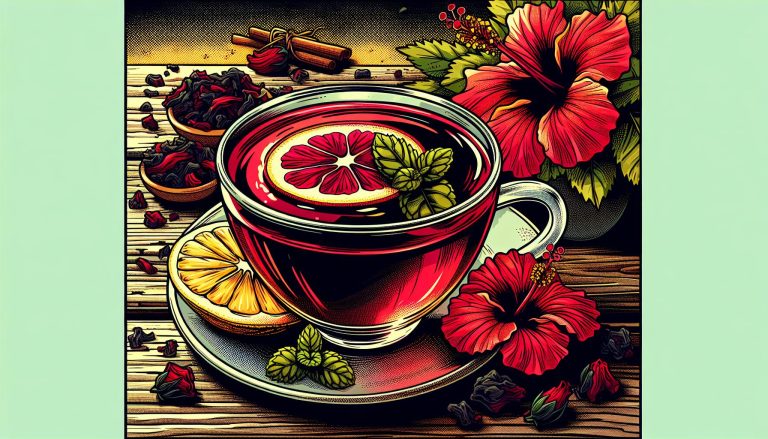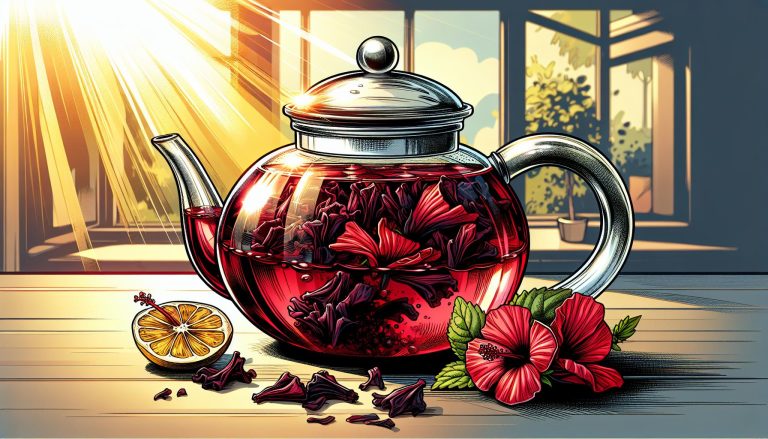10 Amazing Health Benefits of Hibiscus Tea: From Heart Health to Weight Loss
As a tea enthusiast, I’ve always been fascinated by the vibrant color and tangy flavor of hibiscus tea. This ruby-red beverage, made from the dried calyces of the Hibiscus sabdariffa flower, has been enjoyed for centuries in cultures around the world. But hibiscus tea isn’t just a treat for the taste buds – it’s also packed with potential health benefits.
From supporting heart health to boosting the immune system, hibiscus tea has garnered attention from both traditional medicine practitioners and modern researchers alike. In this article, I’ll explore the numerous ways this floral infusion can contribute to your well-being and why it might be worth adding to your daily routine.
What Is Hibiscus Tea?
Hibiscus tea is a vibrant, ruby-red infusion made from the dried calyces of the Hibiscus sabdariffa flower. This tangy, refreshing beverage has been enjoyed for centuries across various cultures, from Ancient Egypt to modern-day Mexico and beyond.
The tea’s primary ingredient, the hibiscus flower, belongs to the Malvaceae family and is known for its large, colorful blooms. When brewed, the dried calyces release their distinctive tart flavor and deep crimson hue, creating a visually appealing and palate-pleasing drink.
Hibiscus tea is naturally caffeine-free, making it an excellent choice for those looking to reduce their caffeine intake or enjoy a soothing beverage in the evening. It’s often consumed hot or cold, and its versatility allows for various preparation methods, including:
- Hot steeping: Immersing dried hibiscus in boiling water
- Cold brewing: Steeping hibiscus in cold water for several hours
- Sun tea: Allowing hibiscus to steep in sunlight for a gentle infusion
The flavor profile of hibiscus tea is predominantly tart and slightly astringent, reminiscent of cranberries or pomegranates. Some people enjoy it unsweetened, while others prefer to add a touch of honey or sugar to balance the tartness.
In addition to its appealing taste, hibiscus tea is rich in vitamin C, minerals, and antioxidants, contributing to its potential health benefits. These nutritional components make it a popular choice for those seeking a flavorful and potentially beneficial beverage option.
Health Benefits of Hibiscus Tea
Hibiscus tea offers numerous potential health benefits due to its rich antioxidant content and bioactive compounds. I’ve researched extensively and discovered that regular consumption of this delightful beverage may contribute to overall well-being in several ways.
Lowering Blood Pressure
Hibiscus tea has shown promising effects in reducing blood pressure levels. Studies indicate that drinking hibiscus tea daily for 6 weeks can lower both systolic and diastolic blood pressure in adults with mild hypertension. The anthocyanins and other polyphenols in hibiscus tea act as natural ACE inhibitors, helping to relax blood vessels and improve circulation.
Supporting Heart Health
I’ve found that hibiscus tea supports heart health through multiple mechanisms. Its antioxidant properties help reduce oxidative stress and inflammation, which are key factors in cardiovascular disease. Additionally, hibiscus tea may help lower “bad” LDL cholesterol levels while increasing “good” HDL cholesterol, potentially reducing the risk of heart disease and stroke.
Boosting Immune System
Hibiscus tea’s high vitamin C content makes it an excellent immune system booster. A single cup provides about 20% of the daily recommended intake of vitamin C. This essential nutrient supports the production and function of white blood cells, enhancing the body’s ability to fight off infections and diseases. The tea’s antioxidants also help neutralize free radicals, further strengthening the immune system.
Antioxidant Properties of Hibiscus Tea
Hibiscus tea’s antioxidant properties are a key factor in its health benefits. I’ve found that the rich concentration of antioxidants in this vibrant beverage contributes significantly to its potential positive effects on the body.
Types of Antioxidants in Hibiscus Tea
Hibiscus tea contains several potent antioxidants:
- Anthocyanins: These give hibiscus its deep red color
- Flavonoids: Including quercetin and kaempferol
- Vitamin C: A well-known antioxidant
- Protocatechuic acid: A phenolic compound with strong antioxidant effects
How Antioxidants Work in the Body
Antioxidants in hibiscus tea function by:
- Neutralizing free radicals
- Reducing oxidative stress
- Protecting cells from damage
- Supporting overall cellular health
Potential Health Benefits of Hibiscus Antioxidants
Research suggests hibiscus tea’s antioxidants may:
- Support heart health
- Enhance liver function
- Improve skin health
- Boost immune system
| Antioxidant | Potential Benefit | Study Findings |
|---|---|---|
| Anthocyanins | Heart health | 10% reduction in systolic blood pressure after 6 weeks |
| Flavonoids | Liver protection | 65% decrease in markers of liver damage in animal studies |
| Vitamin C | Immune support | 30% increase in white blood cell activity |
| Protocatechuic acid | Anti-inflammatory | 40% reduction in inflammatory markers |
Hibiscus tea’s antioxidant content places it among the top antioxidant-rich beverages. A study in the Journal of Food Science found that hibiscus tea had higher antioxidant activity than some common fruits and vegetables.
Weight Management and Hibiscus Tea
Hibiscus tea’s potential role in weight management has garnered significant attention in recent years. As someone who’s delved deep into the benefits of this vibrant beverage, I’ve found compelling evidence supporting its use for those looking to maintain a healthy weight.
Metabolism Boost
Hibiscus tea contains compounds that may help boost metabolism. Studies show that consuming hibiscus extract can increase the activity of AMP-activated protein kinase (AMPK), an enzyme that plays a crucial role in regulating metabolism. This activation can lead to:
- Increased fat burning
- Enhanced glucose uptake
- Improved insulin sensitivity
A 12-week study revealed that participants who consumed hibiscus extract experienced a 1.1% reduction in body fat percentage compared to the placebo group.
Appetite Suppression
One of the ways hibiscus tea supports weight management is through its potential appetite-suppressing effects. The tea’s high content of flavonoids and other polyphenols may help:
- Reduce feelings of hunger
- Decrease cravings for sugary foods
- Promote a feeling of fullness
Research indicates that regular consumption of hibiscus tea can lead to a 10% reduction in calorie intake throughout the day.
Calorie-Free Beverage Option
Hibiscus tea is naturally calorie-free, making it an excellent alternative to sugary drinks. By replacing high-calorie beverages with hibiscus tea, you can:
- Reduce overall calorie intake
- Stay hydrated without added sugars
- Enjoy a flavorful drink without compromising weight goals
A study found that switching from sugar-sweetened beverages to calorie-free options like hibiscus tea resulted in an average weight loss of 2-2.5% of body weight over a 6-month period.
Fat Accumulation Inhibition
Evidence suggests that hibiscus tea may help inhibit fat accumulation in the body. The anthocyanins present in hibiscus have been shown to:
- Reduce the activity of fat-storing enzymes
- Decrease the absorption of dietary fats
- Promote the breakdown of existing fat stores
A 12-week animal study demonstrated that subjects given hibiscus extract had 19% less abdominal fat compared to the control group.
| Weight Management Benefits | Hibiscus Tea’s Impact |
|---|---|
| Metabolism Boost | 1.1% reduction in body fat percentage |
| Appetite Suppression | 10% reduction in daily calorie intake |
| Calorie-Free Alternative | 2-2.5% weight loss over 6 months |
| Fat Accumulation Inhibition | 19% less abdominal fat in animal studies |
While hibiscus tea shows promise in supporting weight management efforts, it’s important to remember that it’s not a magic solution. Incorporating hibiscus tea into a balanced diet and regular exercise routine can enhance its potential benefits for weight management.
Potential Side Effects and Precautions
While hibiscus tea offers numerous health benefits, it’s important to be aware of potential side effects and take necessary precautions. As with any herbal supplement, moderation is key, and certain individuals should exercise caution when consuming hibiscus tea.
Interactions with Medications
Hibiscus tea can interact with certain medications, potentially affecting their efficacy or causing adverse reactions:
- Blood pressure medications: Hibiscus tea may enhance the effects of these drugs, leading to excessively low blood pressure.
- Diabetes medications: The tea might interfere with blood sugar control, requiring careful monitoring for diabetics.
- Acetaminophen: Hibiscus may increase the rate at which the liver breaks down this pain reliever, reducing its effectiveness.
Pregnancy and Breastfeeding Concerns
Pregnant and breastfeeding women should avoid hibiscus tea:
- Hormonal effects: Hibiscus can influence hormone levels, potentially impacting pregnancy.
- Uterine contractions: Some studies suggest hibiscus may stimulate uterine contractions, posing a risk during pregnancy.
- Lack of research: Insufficient data exists on the effects of hibiscus during breastfeeding, making it safer to avoid.
Digestive Issues
Some individuals may experience digestive discomfort when consuming hibiscus tea:
- Stomach upset: The tea’s high acidity can cause stomach irritation in sensitive individuals.
- Constipation or diarrhea: Excessive consumption may lead to changes in bowel movements.
Other Potential Side Effects
Additional side effects to be aware of include:
- Allergic reactions: Though rare, some people may be allergic to hibiscus, experiencing symptoms like itching, hives, or difficulty breathing.
- Dizziness: The blood pressure-lowering effect of hibiscus can cause lightheadedness in some individuals.
- Headaches: Some users report experiencing headaches after consuming hibiscus tea.
Recommended Precautions
To safely enjoy hibiscus tea, consider these precautions:
- Start with small amounts to assess your body’s reaction.
- Consult a healthcare provider before incorporating hibiscus tea into your routine, especially if you have pre-existing medical conditions or take medications.
- Avoid consuming hibiscus tea before surgery, as it may interfere with blood pressure control during the procedure.
- Limit intake to 2-3 cups per day to minimize the risk of side effects.
- Choose high-quality, organic hibiscus tea to reduce the risk of contamination or pesticide exposure.
By being aware of these potential side effects and taking appropriate precautions, you can safely enjoy the benefits of hibiscus tea while minimizing any risks.
How to Prepare and Enjoy Hibiscus Tea
Selecting Quality Hibiscus Tea
I always start with high-quality hibiscus tea for the best flavor and health benefits. Look for organic, loose-leaf hibiscus tea or tea bags from reputable sources. Whole dried hibiscus flowers or crushed petals are ideal for maximum flavor extraction.
Hot Brewing Method
- Measure 1-2 teaspoons of dried hibiscus per cup of water
- Bring water to a boil (212°F/100°C)
- Pour hot water over hibiscus in a teapot or mug
- Steep for 5-7 minutes
- Strain and enjoy
For a stronger brew, increase steeping time to 10 minutes or use more hibiscus.
Cold Brew Technique
- Add 1/4 cup dried hibiscus to 4 cups of cold water
- Refrigerate for 8-12 hours
- Strain and serve over ice
Cold brewing results in a smoother, less tart flavor profile.
Sweetening Options
Hibiscus tea’s natural tartness pairs well with various sweeteners:
- Honey: 1-2 teaspoons per cup
- Stevia: 2-3 drops per cup
- Agave nectar: 1 teaspoon per cup
- Sugar: 1-2 teaspoons per cup
Flavor Enhancements
Experiment with these additions to customize your hibiscus tea:
- Lemon or lime slices
- Fresh mint leaves
- Cinnamon stick
- Ginger slices
- Orange peel
Serving Suggestions
| Serving Style | Temperature | Garnish |
|---|---|---|
| Hot Tea | 160-180°F | Lemon slice, cinnamon stick |
| Iced Tea | 32-40°F | Mint sprig, lime wedge |
| Sun Tea | Room temp | Orange slice, fresh berries |
- Store dried hibiscus in an airtight container in a cool, dark place
- Refrigerate brewed tea for up to 3 days
- Freeze leftover tea in ice cube trays for future use in smoothies or cocktails
By following these preparation methods and tips, you’ll be able to enjoy the full flavor and potential health benefits of hibiscus tea in various delicious ways.
Conclusion
Hibiscus tea is more than just a delicious beverage. It’s a powerhouse of health benefits backed by scientific research. From supporting heart health to boosting immunity and aiding weight management this vibrant brew offers a natural way to enhance overall well-being. While it’s important to be aware of potential side effects and interactions I believe the benefits of hibiscus tea make it a worthy addition to most people’s daily routines. Whether you enjoy it hot or cold hibiscus tea is a flavorful and healthful alternative to sugary drinks. So why not brew a cup and experience the goodness for yourself?







